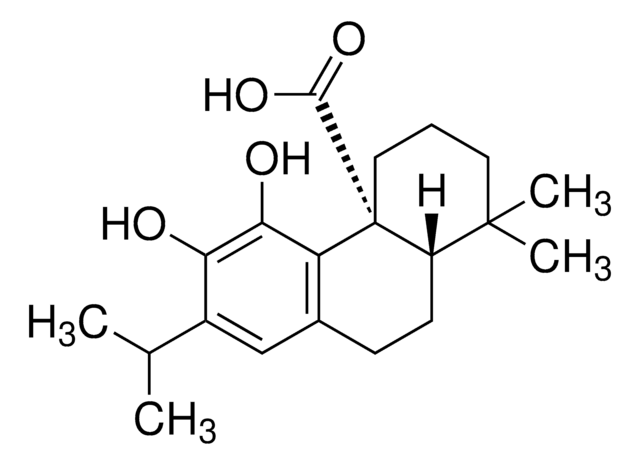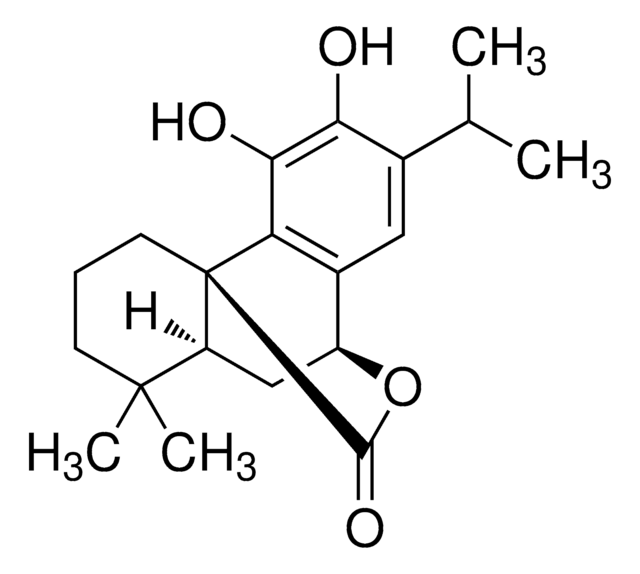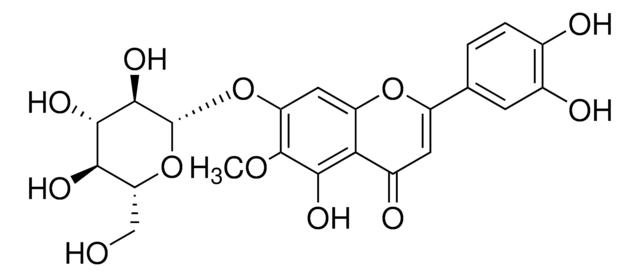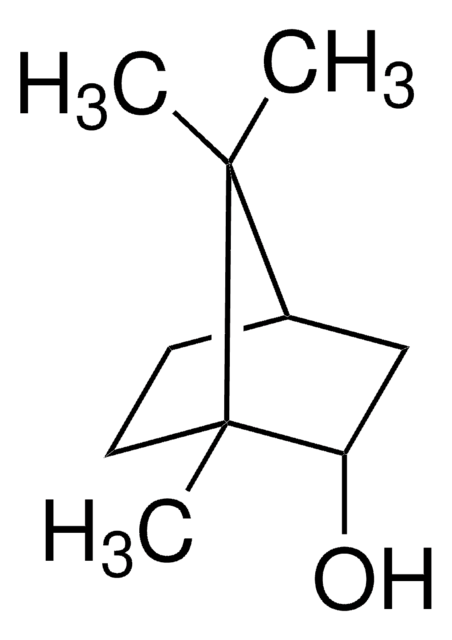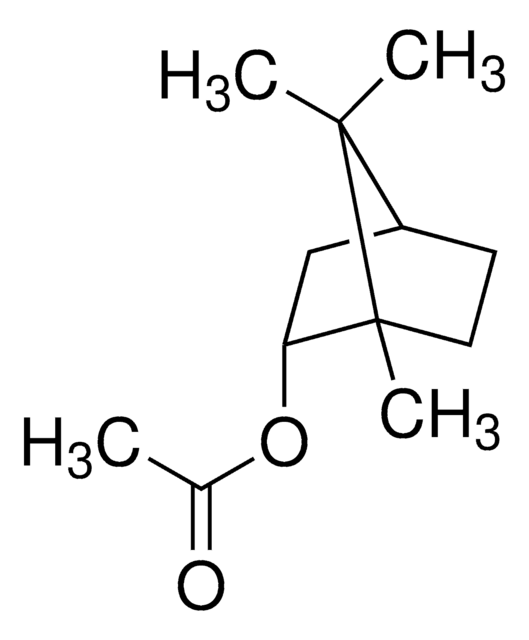49702
Carnosol
analytical standard
Sinónimos:
Picrosalvin
About This Item
Productos recomendados
origen biológico
Rosemarinus officinalis L. leaves
Nivel de calidad
grado
analytical standard
Ensayo
≥98.0% (HPLC)
caducidad
limited shelf life, expiry date on the label
técnicas
HPLC: suitable
gas chromatography (GC): suitable
aplicaciones
food and beverages
Formato
neat
temp. de almacenamiento
−20°C
cadena SMILES
CC(C)c1cc2[C@@H]3C[C@H]4C(C)(C)CCC[C@]4(C(=O)O3)c2c(O)c1O
InChI
1S/C20H26O4/c1-10(2)11-8-12-13-9-14-19(3,4)6-5-7-20(14,18(23)24-13)15(12)17(22)16(11)21/h8,10,13-14,21-22H,5-7,9H2,1-4H3/t13-,14-,20+/m0/s1
Clave InChI
XUSYGBPHQBWGAD-PJSUUKDQSA-N
¿Está buscando productos similares? Visita Guía de comparación de productos
Descripción general
Aplicación
Acciones bioquímicas o fisiológicas
Envase
Otras notas
Palabra de señalización
Warning
Frases de peligro
Consejos de prudencia
Clasificaciones de peligro
Skin Sens. 1
Código de clase de almacenamiento
11 - Combustible Solids
Clase de riesgo para el agua (WGK)
WGK 3
Punto de inflamabilidad (°F)
Not applicable
Punto de inflamabilidad (°C)
Not applicable
Elija entre una de las versiones más recientes:
¿Ya tiene este producto?
Encuentre la documentación para los productos que ha comprado recientemente en la Biblioteca de documentos.
Los clientes también vieron
Nuestro equipo de científicos tiene experiencia en todas las áreas de investigación: Ciencias de la vida, Ciencia de los materiales, Síntesis química, Cromatografía, Analítica y muchas otras.
Póngase en contacto con el Servicio técnico